![]() - After more than 4 years of implementing Resolution No. 08 dated December 10, 2019 of the Provincial People's Council on specific policies to encourage investment, develop cooperation, link production and consumption of agricultural and rural products in the province for the period 2020 - 2025 and Resolution 15 dated July 17, 2021 of the Provincial People's Council amending and supplementing a number of articles of Resolution 08, many enterprises, cooperatives and households have accessed support policies to promote the development of agricultural production. In addition to the achieved results, the implementation of a number of policies under the resolution still has many problems that need to be resolved.
- After more than 4 years of implementing Resolution No. 08 dated December 10, 2019 of the Provincial People's Council on specific policies to encourage investment, develop cooperation, link production and consumption of agricultural and rural products in the province for the period 2020 - 2025 and Resolution 15 dated July 17, 2021 of the Provincial People's Council amending and supplementing a number of articles of Resolution 08, many enterprises, cooperatives and households have accessed support policies to promote the development of agricultural production. In addition to the achieved results, the implementation of a number of policies under the resolution still has many problems that need to be resolved.
Resolution 08 includes 8 groups of support policies. After more than 4 years of implementation, investors have only been able to access 4/8 groups of support policies under this resolution.
Many policy groups are difficult to reach.
Immediately after Resolution 08 and Resolution 15 were issued, relevant levels and sectors of the province implemented solutions to bring the resolution into life soon, such as strengthening propaganda, dissemination, and guiding investors on the contents of the resolution. Thereby helping businesses, cooperatives, families, and individuals (collectively referred to as investors) to fully grasp information and proactively access support policies.

By the end of 2023, relevant levels and sectors have supported 1,079 investors to access credit interest rate support policies with a total bank loan capital of VND 530.4 billion, the amount of State budget interest rate support of nearly VND 56 billion; supported 118 investors to develop brands and expand markets with an amount of over VND 3 billion; supported the establishment of 132 new cooperatives with an amount of VND 2.64 billion; supported 32 young intellectuals to work at 28 cooperatives with a support amount of nearly VND 3.3 billion; supported rewards for owners of 59 OCOP products with an amount of VND 350 million.
However, in addition to the achieved results, the implementation of some support policies under Resolution 08 and Resolution 15 still has some problems. Specifically, up to now, all levels and sectors have only implemented support for investors in 4/8 groups of support policies under the resolution, including: support for credit interest rates; support for brand development and market expansion; support for the establishment of new and bringing young intellectuals to work at cooperatives operating in the agricultural sector; support for the OCOP program project.
There are 4/8 policy groups that investors have not accessed, including: support for high-tech agriculture, production of new products with high economic value, concentrated commodity production; support for investment in facilities: preservation, processing of agricultural and forestry products, slaughter of livestock and poultry; support for developing cooperation and linkage in production and consumption of agricultural products; support for investment in infrastructure outside the project fence.
Find the cause
Mr. Ha Manh Cuong, Deputy Director of the Department of Planning and Investment, said: The reason why investors have not been able to access the remaining 4/8 policy groups is because these policies are mainly aimed at large-scale projects, concentrated production requiring many high conditions, while investors in the province are mainly small-scale, making it difficult to implement these projects to benefit from the policies.
For example, support for agricultural product preservation is under Article 8 of Resolution 08. Accordingly, investors are supported with 70% of the investment cost for agricultural product preservation facilities but not exceeding 2 billion VND/project to build infrastructure for transportation, electricity, water, waste treatment, factories and purchase equipment. Support conditions: the capacity of agricultural and forestry product drying facilities must reach at least 30 tons of products/time; preservation of vegetables, tubers, fruits, fresh fruits, tea, anise, tobacco, other agricultural products must reach 200 tons of storage/time; preservation and storage of plant varieties must reach a capacity of 30 tons of storage/time. With such conditions, investors in the area, mainly enterprises, cooperatives, and families with small and retail production scale, find it difficult to meet the requirements.
In addition, some interest rate support policies under Resolution 08 and Resolution 15, although many investors have accessed them, are still inadequate in practice, such as interest rate support for the development of key crops of the province. Specifically, Clause 3, Article 6 of Resolution 08 states that “The interest rate support period is calculated from the date of disbursement of loans according to the credit contract with the bank, and is based on the term of the credit contract between the customer and the bank, but not exceeding 5 years for livestock and poultry farming projects; not exceeding 7 years for forestry tree planting projects for raw wood production; not exceeding 10 years for fruit tree and specialty tree planting projects; not exceeding 12 years for large timber tree planting projects; not exceeding 3 years for other agricultural investment projects”.
However, there is currently no definition and list of regulations for specialty trees. On the other hand, some key trees of the province such as anise, cinnamon, and cassia are forestry trees in the list of projects with special investment incentives. According to the provisions of Clause 3, Article 6 of Resolution 08, these trees are not fruit trees, not forestry trees for timber production. Therefore, projects for growing anise, cinnamon, and cassia in the group of other agricultural investment projects, the credit interest support period is only applied for a maximum of 3 years, which is not appropriate because the above trees usually grow and harvest for 7-8 years...
These shortcomings make it difficult for investors to access support policies. Mr. Vi Hai Truyen, Chairman of the Board of Directors of Chi Lang Star Anise Cooperative, Chi Lang District, said: In 2023, the cooperative established a star anise planting project in Gia Loc Commune, Chi Lang District. After understanding the credit interest rate support policies, the cooperative took the steps to prepare documents in accordance with regulations. According to the cooperative's research in the guidance documents of the Central and the province, this project of the cooperative proposed to enjoy the interest rate support policy for a period of 10 years. However, according to the guidance of the competent authorities, this project is supported for a shorter period (1 unit responded to the cooperative that the support period is 7 years, 1 unit responded that it is 3 years). Therefore, the cooperative is very confused in accessing the policy.
Along with the case of Chi Lang Star Anise Cooperative, many other investors in the province also encountered similar difficulties, especially related to forest and fruit tree planting projects. In addition, some other investors encountered difficulties related to the planning in Article 5 of Resolution 08 (The project is consistent with the planning and orientation of socio-economic development of the province; Investors implementing investment projects in the province must comply with the provisions of the law on investment, land, construction and other relevant regulations and the provisions of this Resolution).
Ms. Vy Thuy Thanh, Head of the Finance and Planning Department of Huu Lung District, said: In recent years, the demand for loans with interest rate support according to Resolution 08 of investors in the district has been very large. However, household-scale livestock investors only build barns on rural residential land, land for perennial crops, and garden land adjacent to houses. Meanwhile, Article 10 of the 2013 Land Law stipulates that land for building livestock barns is other agricultural land. In addition, some investors have planted forests (acacia, eucalyptus) on land for perennial crops, planted fruit trees on land for other annual crops... These livestock, forest and fruit tree projects, when compared with land use planning, are mostly not qualified for planning and land use planning. Since 2023, the district's professional agencies have received 50 projects requesting credit interest rate support under Resolution 08, but none of them have met the conditions.
Advice to overcome difficulties
Faced with the above difficulties, the Department of Planning and Investment has been and is continuing to implement solutions to overcome them. Mr. Ha Manh Cuong, Deputy Director of the Department of Planning and Investment, said: To overcome the above limitations and shortcomings, the Department has chaired and coordinated with relevant agencies to review and issue Inter-sectoral Guidance No. 2999 to replace Inter-sectoral Guidance No. 1678 dated September 29, 2021 and Inter-sectoral Guidance No. 1859 dated September 9, 2022 on the order, procedures, and documents for implementing Resolution 08 and Resolution 15. At the same time, the report proposed the Provincial People's Committee to submit to the Provincial People's Council the policy of amending and supplementing Resolution 08 and Resolution 15. Currently, the Department of Planning and Investment is chairing the drafting of a Resolution to adjust Resolution 08 and Resolution 15 to overcome the difficulties and shortcomings. It is expected to be submitted to the Provincial People's Council for approval after the Government issues a Decree replacing Decree No. 57/2018/ND-CP dated April 17, 2018 of the Government on mechanisms and policies to encourage investment in agriculture and rural areas.
With the urgent search for solutions by relevant agencies, it is hoped that in the coming time, the implementation of policies to support agricultural and rural development according to Resolution 08, Resolution 15 or other policies will be more clearly effective. Thereby creating more favorable conditions for businesses, cooperatives, households and individuals to continue to access support policies, gradually improving production and business efficiency. Thereby, contributing to the successful implementation of the general socio-economic development goals and tasks in the province.
Source


















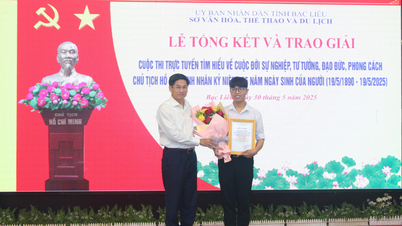
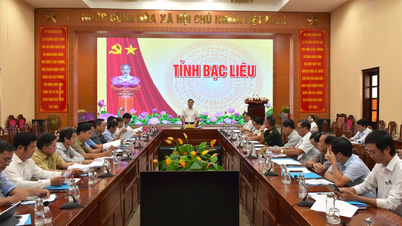



















































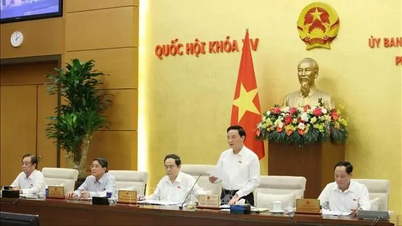

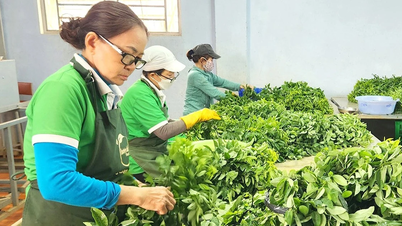





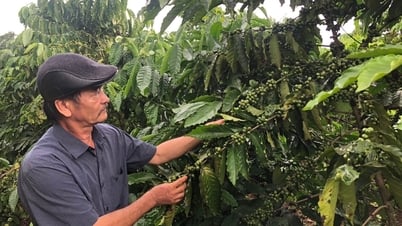












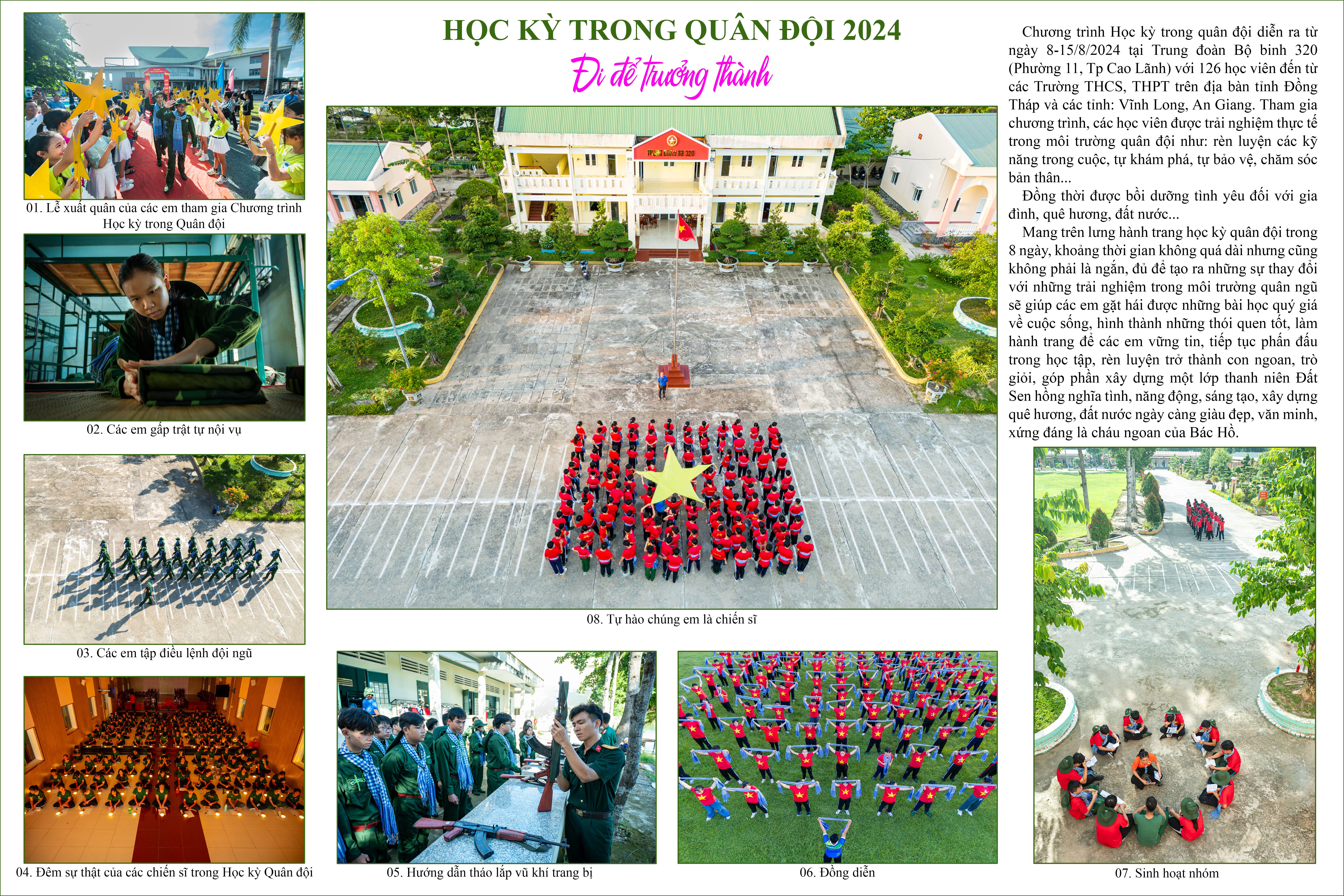



Comment (0)